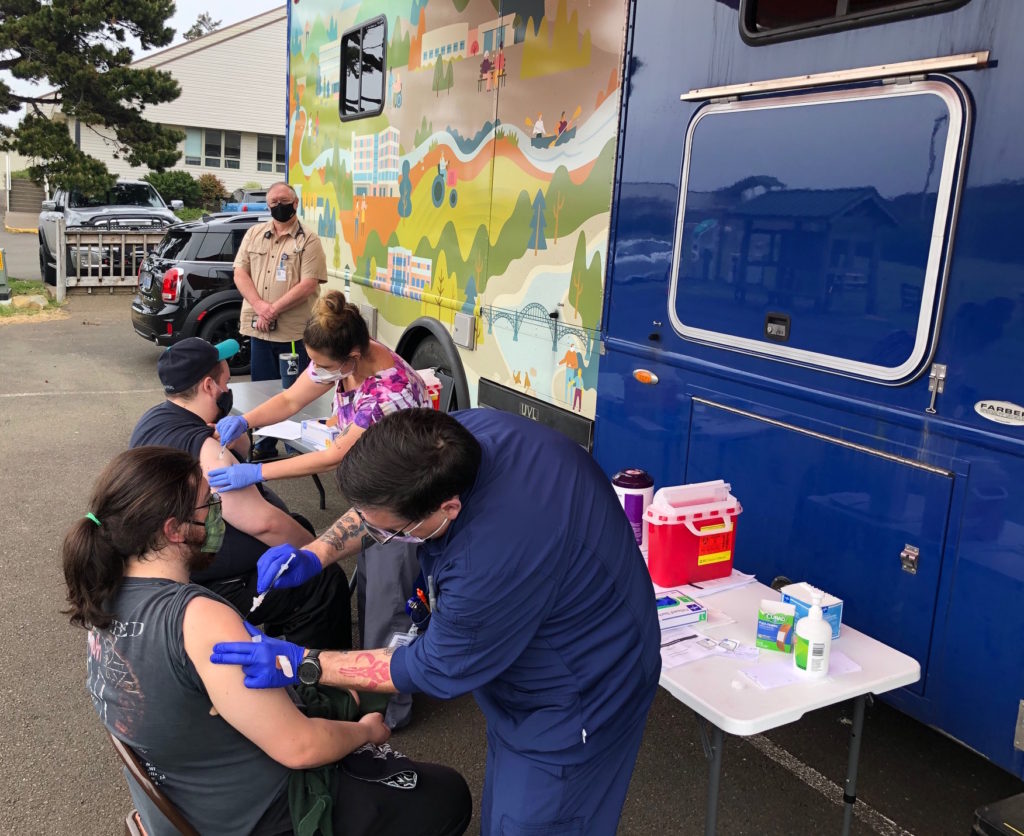
By QUINTON SMITH/YachatsNews.com
When the big blue Samaritan Health Systems bus pulled behind the Yachats Commons to deliver 90 doses of the Pfizer vaccine Friday, it represented the next step in the fight against COVID-19 in Lincoln County.
No longer will Lincoln County Public Health and its partners in the coronavirus fight be operating the big, mass first-dose clinics at the fairgrounds in Newport where it could inoculate hundreds of people a day. Now the fight is being taken to small communities, apartment complexes, business groups, churches, high schools and other places where people live, work, or learn.
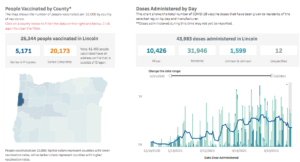
For the past five months, the county and its medical partners have inoculated 25,344 people – or 61 percent of county residents eligible to get the vaccine. It is the third highest rate of Oregon’s 36 Oregon counties.
Complicated to set up, once they got rolling the big clinics were well organized and could deal with hundreds of people a day. But now those people eager to get vaccinated and able or willing to travel to get a shot are finished.
The number of people – in Lincoln County and throughout most of Oregon — seeking a shot is slowing dramatically. So now comes the harder, smaller and slower steps of reaching people closer to their work or homes or schools.
“There’s a large group who will go anywhere at any time to get a vaccine and then there’s a group who will do it when it’s convenient,” said Aimee Snyder, outreach coordinator for Lincoln County Public Health, as she checked people into the Yachats clinic Friday. “Our goal now is to find the groups who want convenience.”
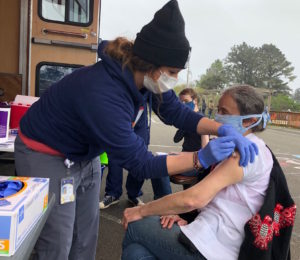
On Friday in Yachats, that meant more than 20 students from Angell Job Corps, some employees stepping away from downtown businesses, others just getting off work, and even Mayor Leslie Vaaler.
“This was the first available for us,” said James Sherman, 21, a Job Corps plumbing student who, like the rest of nearly 60 students at the slowly-reopening center, has been confined to the campus four miles north of Yachats. “Now, it’s our responsibility to get it done.”
Lincoln County will be using the Samaritan mobile clinic – it comes with three staff and Pfizer vaccines — on Wednesdays and Fridays to park outside places that ask for vaccinations. On Wednesday it’s at the Port of Toledo. A clinic in Depoe Bay is also in the works.
But Snyder is looking for more, asking businesses, apartment complexes, groups, churches – almost anyone – to let her know if they will sponsor a clinic. The county will provide volunteers from its list of nearly 400 to handle parking, check-in, forms and all the other details.
“A lot of times the decision factor is someone they know saying ‘Hey, there’s a clinic, let’s go’,” said Snyder.
To inquire about hosting a clinic, use this form on the LCPH website.
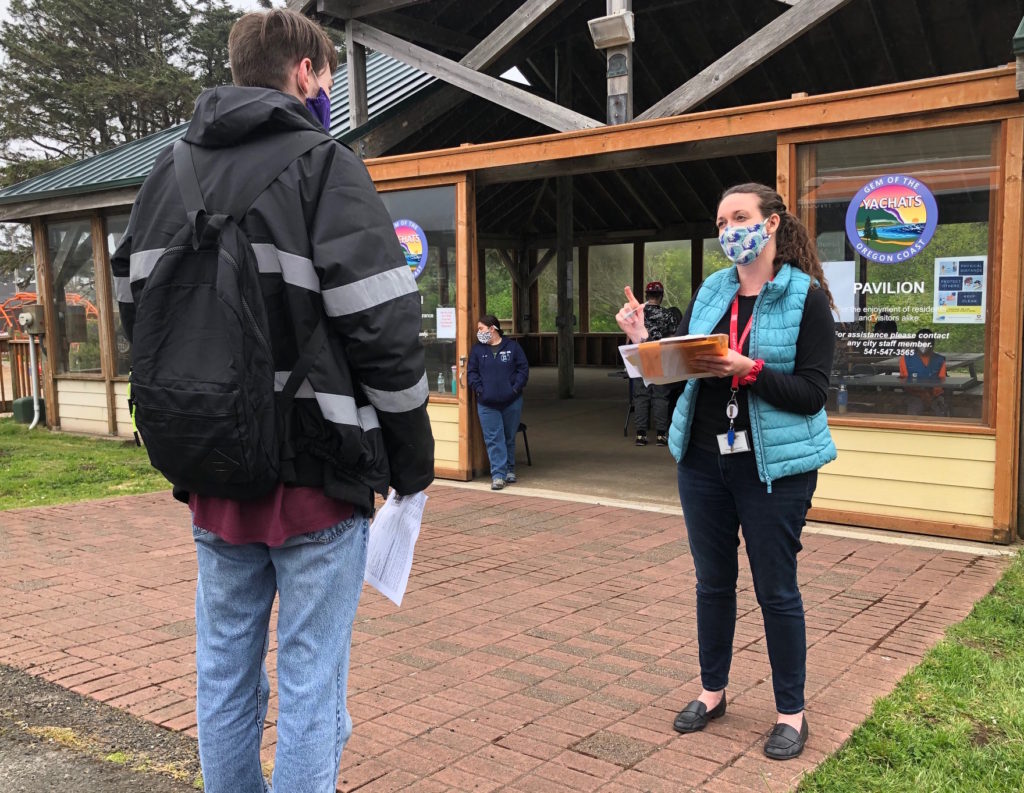
Lots of vaccines available
Lincoln County, Samaritan and two pharmacies are getting 2,500 doses of vaccines this week – to go with almost 1,100 unused from last week. LCPH spokeswoman Susan Trachsel told county commissioners Monday that the county has so much vaccine and such declining demand, that it plans to skip its vaccine order next week.
But the county is also loosening its vaccine restrictions.
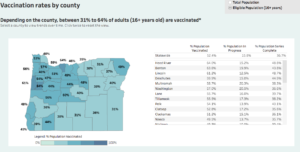
It has opened a second-dose clinic Wednesday at the fairgrounds to any walk-in seeking their first shot. And, in a break with past practice, they will draw as few as two doses from vials – they hold 10-11 doses — if people show up asking for a shot.
Samaritan Health Systems, which has been holding first- and second-dose clinics Friday and Saturday afternoons in Newport, is now opening its afternoon clinics to walk-ins as well.
“We’ve been waiting to say this: ‘Whatever clinic you can get to in Lincoln County, we will vaccinate you’,” Trachsel said.
Trachsel told commissioners that health department staff is also getting vaccination data for each ZIP code in the county to see where it might concentrate more effort.
Elsewhere in the country where vaccinations are also waning, some municipalities or states are offering unusual incentives — drinks, debit cards or cash to entice people to get vaccinated, according to the New York Times.
Commissioner Kaety Jacobson suggested even a door-to-door approach in some neighborhoods – similar to Oregon State University’s coronavirus TRACE project in Newport last year – “may have some merits.”
“We’re looking at all kinds of options,” Trachsel said.


